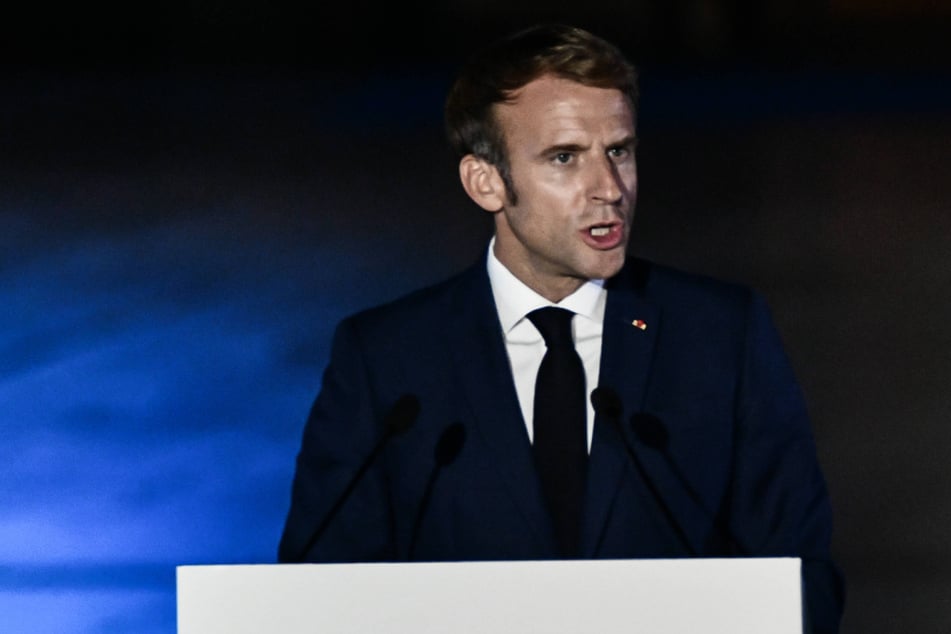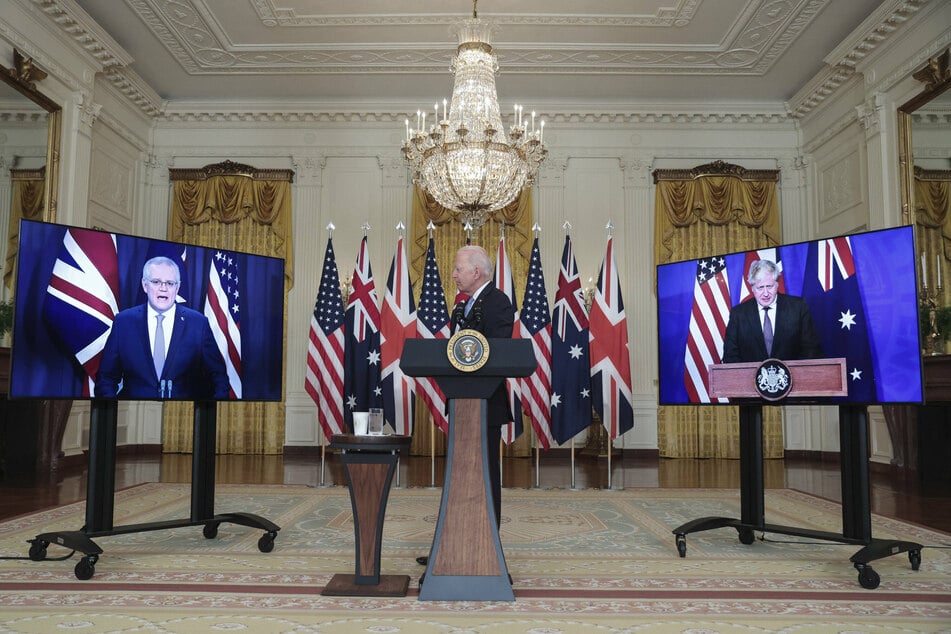France recalls ambassadors to US and Australia over submarine spat
Paris, France - France is recalling its ambassadors to the United States and Australia over a deal that could see Australia acquire nuclear-powered submarines.

The decision had been made on the request of French President Emmanuel Macron, Foreign Minister Jean-Yves Le Drian said late Friday.
The so-called AUKUS alliance between Britain, the US, and Australia was announced several days ago and would see Canberra able to acquire nuclear-powered submarines in the next 18 months.
It also means a $66-billion deal for Australia to buy French submarines will be scrapped.
It constitutes "unacceptable behavior between allies and partners, whose consequences directly affect the vision we have of our alliances, of our partnerships and of the importance of the Indo-Pacific for Europe," Le Drian said.
French Defence Minister Florence Parly said Paris was "examining all hypotheses and scenarios" when it comes to possible compensation. "We will protect and defend our interests," she said.
The US said it had been in touch with its French partners on the decision to recall their envoy, in a statement from National Security Council spokeswoman Emily Horne.
"We understand their position and will continue to be engaged in the coming days to resolve our differences, as we have done at other points over the course of our long alliance," Horne said.
"France is our oldest ally and one of our strongest partners," the statement added.
The US says France had advance knowledge of the pact announcement

Australia issued a similar response stressing the value of its relationship with France and calling Paris an "important partner and a vital contributor to stability, particularly in the Indo-Pacific."
"We note with regret France’s decision to recall its ambassador to Australia," the statement from Foreign Minister Marise Payne's spokesperson read.
"Australia understands France’s deep disappointment with our decision, which was taken in accordance with our clear and communicated national security interests."
President Joe Biden had singled out France as an important partner when he presented the pact earlier this week - in what was likely an effort to appease Paris.
US Secretary of State Antony Blinken also made efforts to mend fences, and emphasized the US sees France as a "vital partner" and "places fundamental value on that relationship."
The US government says France had advance knowledge of the announcement.
Experts say the move by the three parties is clearly aimed at countering China's military threat in the Indo-Pacific, and it quickly drew ire from Beijing.
China was not mentioned directly when the alliance was announced, but Biden referred to "rapidly evolving threats" and a need to strengthen security and military deterrence in the Indo-Pacific region.
Beijing's Foreign Ministry responded by arguing that allowing non-nuclear state Australia to import nuclear-powered technology with strategic military value could cause other nations to question their commitments to nuclear non-proliferation.
China itself has long been a nuclear power.
Australian Prime Minister Scott Morrison said Friday the move was "in everybody's interests, including China's," to maintain a safe and stable region.
The security pact is likely to further strain relations between Beijing and Canberra, as well as between Beijing and Washington.
The Chinese embassy to Australia on Friday rejected a US-Australian statement expressing concern for China's "expansive maritime claims in the South China Sea that are without legal basis" and calling for Beijing to implement domestic legislation in line with the UN's UNCLOS treaty on the seas.
Australia's neighbor New Zealand was also unenthusiastic about the pact. Prime Minister Jacinda Ardern said she would not grant such submarines access to the country's waters.
The European Union was cautious in its response.
Cover photo: IMAGO/ANE Edition

